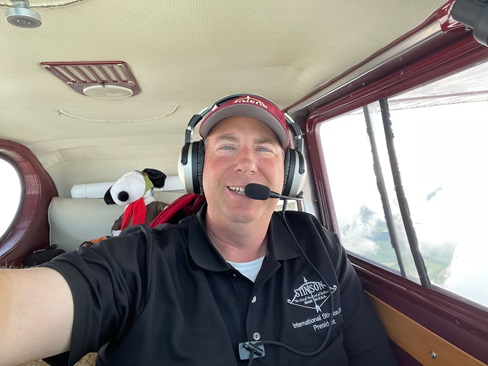Proficient pilot: Not a way to go
Aircraft accidents are a disservice to GA
 A sad aspect of having a lengthy career in aviation is that the list of people one knows who have perished in aircraft accidents grows longer with the passage of time. When I learn of such a tragedy on the web or in the press, the writer of the story often attempts to soften the news by saying that “the pilot died doing what he or she enjoyed.” This presumably provides a measure of comfort to those who knew the pilot. It is intended to somehow make his passing more palatable.
A sad aspect of having a lengthy career in aviation is that the list of people one knows who have perished in aircraft accidents grows longer with the passage of time. When I learn of such a tragedy on the web or in the press, the writer of the story often attempts to soften the news by saying that “the pilot died doing what he or she enjoyed.” This presumably provides a measure of comfort to those who knew the pilot. It is intended to somehow make his passing more palatable.
Frankly, I do not find such a sentiment to be the least bit comforting. It absolutely, positively is not the way I would want to go, and I pray that no one who knows me will ever read about my having flown west in this manner. (Nor can I bear the thought of being immortalized in one of the NTSB’s Factual Aviation Reports.)
There are many unpleasant implications associated with being killed in an airplane. For one thing, it would tarnish my stature as a decent pilot, one that I would like to survive—for a while, anyway. If I were to get wiped out in a flying machine, it likely would have been my fault. After all, more than 80 percent of all aviation accidents are caused by pilot error. Having a fatal airplane accident often takes the lives of others, passengers who entrusted us with their safekeeping. And then there are innocent bystanders on the ground who might be victimized by an accident of our making. We don’t want to be remembered for having taken their lives, either.
Another disturbing thought is that a fatal accident likely would decimate a perfectly good airplane. It is difficult enough being responsible for a dinged wing tip.
An aircraft accident also is a disservice to general aviation. It provides uninformed and biased reporters further opportunity to distort our image. Our goal should be to spread the gospel about general aviation, not contribute to tainting its reputation.
A classic example of how the press misunderstands general aviation and twists facts involves the television news story about a Mooney pilot who survived a midair collision over Long Beach, California, some years ago. The pilot had been wearing a hood and practicing instrument flying with his instructor when one of his wing tips banged into the wing tip of another in VFR conditions. Thankfully, everyone survived. After landing, the shaken Mooney pilot tied down his airplane and installed sun shields to protect his avionics. The TV crew filmed the mishap airplane to show on the evening news how the pilots had been practicing “blind flying” and suggested that the sun shields had prevented one pilot from seeing the other.
Accepting that we are susceptible to an accident should motivate us to do whatever possible to reduce the possibility. Many of us have already made our share of mistakes and should consider ourselves fortunate to have survived them. We should not, however, rely on the fickle finger of fate continuing to point at others. We need to assertively discourage it from eventually pointing our way. As a pilot gets older, currency becomes increasingly more important. We also need to occasionally review our capabilities and impose stricter personal limitations, when appropriate. When I was young, for example, I thought nothing of flying instruments at night over mountainous terrain in single-engine airplanes. I do that no longer. I have raised my IFR minimums and avoid night flight over unfamiliar and inhospitable terrain. I can foresee the possibility that someday I might have to become a strictly VFR pilot. The aging process is not kind to our cognitive abilities, and although you might not be particularly concerned about them now, do recognize the need to keep a watchful and objective eye on your skills. None of us wants to give some writer an excuse to pen on some fateful day that we had been doing what we enjoyed.
Candidly, I hope that I can recognize when and if it might become necessary to hang ’em up. (I’m not sure, though, if that means hanging up headphones or spurs.)I also am not sure which would be worse, knowing when I am about to embark on my last flight—or having had my last flight without realizing it at the time. Please do not misunderstand. I am not preoccupied with the notion of crunching an airplane. Rather, I am emphatically dedicated to the avoidance of same. It is not a good way to go. I think that my good friend and fellow pilot, George Shanks, has it right. Given the option of how to make his final departure, he enjoys saying that he would prefer to be shot by a jealous husband on his one-hundredth birthday.
Web: www.barryschiff.com


